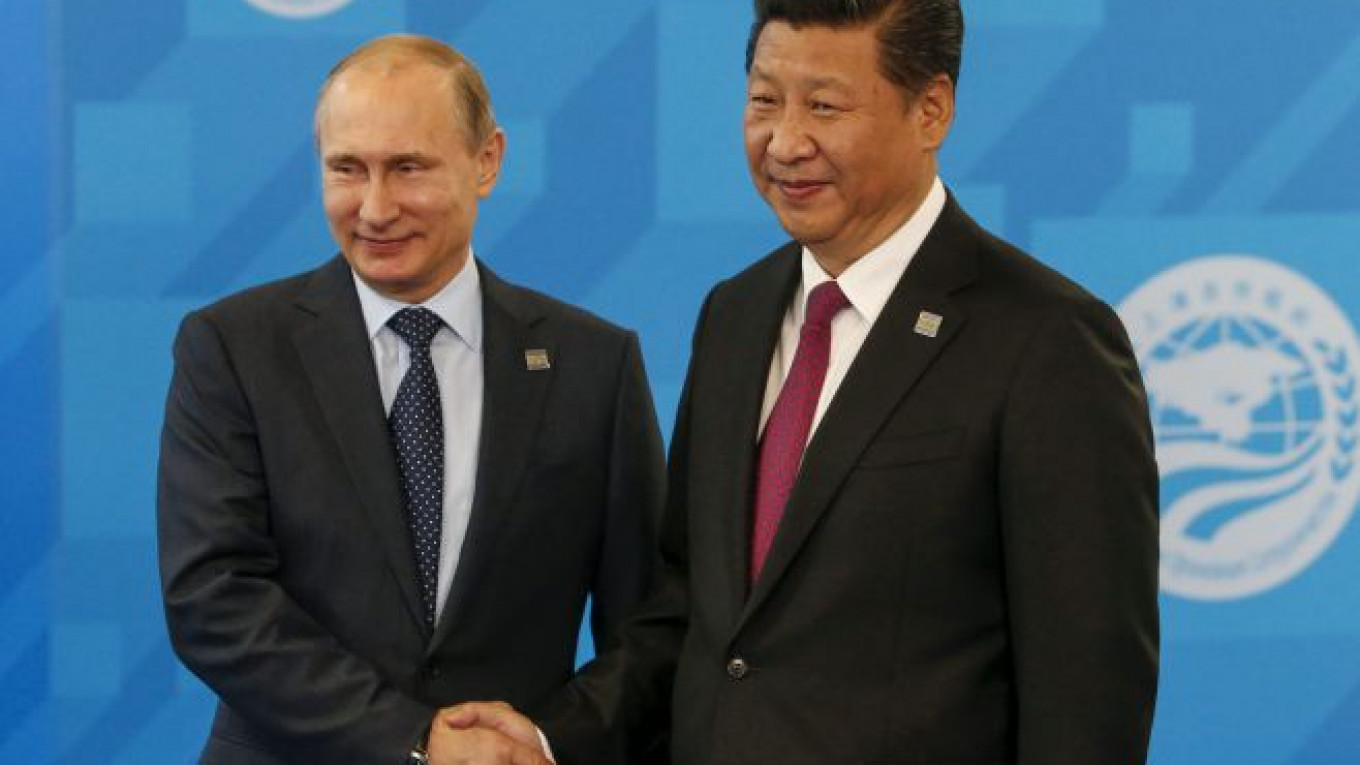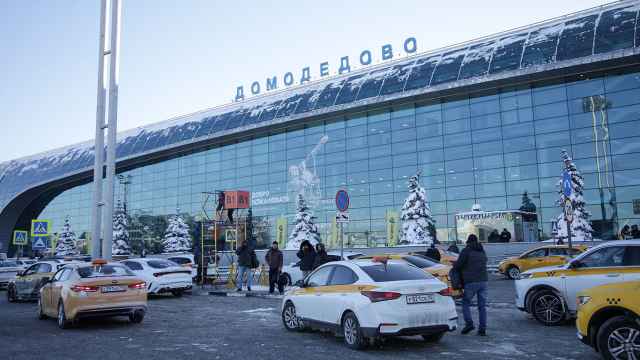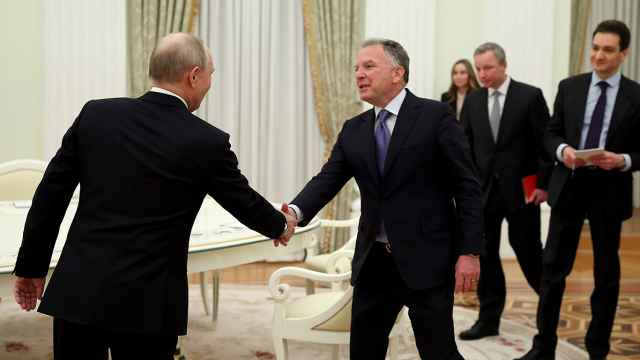This was originally published by the Lowy Interpreter.
Last month saw a summit of two organizations significant for both Russia and China. An extremely wide range of topics were discussed at the BRICS summit and Shanghai Cooperation Organization summit in Ufa, Russia.
These included the typical declarations confirming member state cooperation on countering terrorism, ensuring stability and enhancing global economic development. There were also strong indications that these multilateral organizations are fast becoming platforms that China can use to promote and progress its Silk Road Economic Belt project.
Although currently the project seems more of an umbrella term for large energy and infrastructure projects predominantly in Central and South Asia, it has become a centerpiece of China's broader foreign policy vision. Although there are clearly investment gains to be made by all participants along the Silk Road project, the increasing discussions around it within and on the sidelines of these multilateral organizations could cause concern for Russia's own position within them.
Russia has historically endeavored to balance its leadership role with that of China's in organizations like the SCO. Given tensions in its relations with the West, however, Russia has also had to acknowledge a potentially more vulnerable position in relation to China.
The most highlighted achievements of the BRICS summit included the ratification of the BRICS New Development Bank (NDB), and the $100 billion reserve currency pool known as the Contingent Reserve Arrangement (CRA). China will be the largest donor to the CRA, providing $41 billion, with Russia giving $18 billion.
The creation of these two institutions was in fact officially announced at the 2014 summit in Brazil, but they came into force in Ufa. The NDB will fund infrastructure and sustainable development projects, and can do so in non-BRICS emerging markets. Along with China's Asian Infrastructure Investment Bank (AIIB), the NDB is likely to contribute to projects that are quickly becoming the hallmark of China's Silk Road Economic Belt project.
The Silk Road Economic Belt featured more explicitly in conversations within the SCO, particularly on a bilateral level with Russia. Until recently, Russia has been relatively quiet on its assessment of China's proposed One Belt, One Road proposal, in part because it was unclear as to what exactly it means for Russia.
In April 2015, Russia committed its full support, however, joining the AIIB as a founding member. In May, Russia was even more explicit in acknowledging the value of China's project: Chinese President Xi Jinping and President Vladimir Putin signed a joint declaration on integrating the Eurasian Economic Union and Silk Road Economic Belt projects.
Russia is very aware that it cannot, and will not try to, compete with China's growing economic influence with its neighbors. Russia's leading multilateral economic foreign policy project embodied in the Eurasian Economic Union (EEU) has recently suffered from a variety of tensions, including a Russian economic downturn, trade spats between members and the loss of Ukraine.
Chinese investment via the Silk Road Economic Belt to the EEU project could help revitalize the Russian-led initiative. Chinese trade would certainly benefit from wider access to the single EEU market at a single trade tariff.
Free economic zones and technology clusters would benefit both sides. It is difficult, however, to see how the two projects would fully integrate given the much broader remit of the Silk Road Economic Belt. Instead, on at least a symbolic and political level, it is more likely that the EEU project is subsumed as a small part of the wider Chinese project. In reality, China will increase its share in Russia's infrastructure and finance sectors, mainly on China's terms.
Although the Silk Road Economic Belt project is supposed to be win-win for all, by reinforcing China's foreign policy objectives through the shared goals of these multilateral organizations, the hierarchy within BRICS and SCO shifts in favor of Chinese priorities, in part at the expense of Russia's.
Russia appears to have acknowledged this. To reap the benefits of the One Belt, One Road project more fully, particularly in light of fewer economic options with the West, Russia appears to be willing to accept some loss of status within these multilateral organizations.
Sarah Lain is a research fellow at the Royal United Services Institute think tank.
A Message from The Moscow Times:
Dear readers,
We are facing unprecedented challenges. Russia's Prosecutor General's Office has designated The Moscow Times as an "undesirable" organization, criminalizing our work and putting our staff at risk of prosecution. This follows our earlier unjust labeling as a "foreign agent."
These actions are direct attempts to silence independent journalism in Russia. The authorities claim our work "discredits the decisions of the Russian leadership." We see things differently: we strive to provide accurate, unbiased reporting on Russia.
We, the journalists of The Moscow Times, refuse to be silenced. But to continue our work, we need your help.
Your support, no matter how small, makes a world of difference. If you can, please support us monthly starting from just $2. It's quick to set up, and every contribution makes a significant impact.
By supporting The Moscow Times, you're defending open, independent journalism in the face of repression. Thank you for standing with us.
Remind me later.






